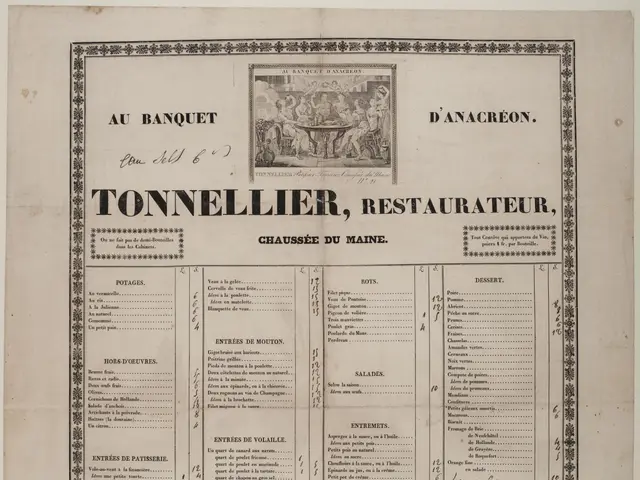DraftKings in Hot Water Over "Risk-Free" Bet Promotions
Legal Dispute Erupts over DraftKings' Advertised "Risk-Free" Wagers in Court
In a turn of events, sports betting giant DraftKings finds itself in the crosshairs for allegedly deceptive advertising of "risk-free" bets in the bustling city of New York. A class action lawsuit, led by Samantha Guery through Reese LLP, accuses the company of misleading marketing. The lawsuit was masterminded by Richard Daynard, a law professor at Northeastern University.
The lawsuit takes issue with DraftKings' promotion of risk-free bets, arguing that the promotion is misleading and violates Section 349 of the New York General Business Law, which prohibits such deceptive practices. Additionally, the lawsuit alleges that the promotion also breaches Section 1363 of the Racing, Pari-Mutuel Wagering and Breeding Law.
In DraftKings' promotion, customers were required to place a wager with their own money, with the operator offering a free bet of equivalent value if the original bet lost. However, the lawsuit highlights the flaw in this arrangement by pointing out that the free bet offered by DraftKings is not worth the value of the original bet, as the value of the free bet cannot be withdrawn before it is betted again. Furthermore, the lawsuit claims that if successful, these free bets earn significantly less than bets placed with customers' own cash.
"Risk-Free": Questionable Claim or Marketing Strategem?
The lawsuit suggests that DraftKings' promotion is deceptive and thus violates Section 349 of the New York General Business Law. In addition, the AGA (American Gaming Association) banned the use of the term "risk-free" in advertising in March 2023, citing concerns related to problem gambling and predatory practices.
Ironically, this is not the first time the term "risk-free" has stirred up controversy. Recently, sports television journalist Rece Davis used the term to refer to a betting recommendation, later correcting himself and cautioning bettors to do so prudently, as all gambling holds inherent risks.
A Different Side of "Risk-Free" Betting
Critics argue that DraftKings' "risk-free" promotions are misleading because users are initially required to deposit and wager their own money, contradicting the common perception that such bets are risk-free. Instead of cash refunds, when customers lose their initial bets, they are issued "Bonus Bets." These bonus funds, although seemingly risk-free, come with restrictions such as limited usability, expiration dates, and constraints on withdrawals[1][5].
Moreover, the full conditions for obtaining and using the bonuses are often hidden in the fine print, leading users to believe they will receive simple, straightforward refunds or bonuses, when in reality the terms are complex and difficult to understand[2][3][5]. It is also asserted that DraftKings' advertisements give the impression that new users will automatically receive large deposit bonuses, whereas in reality, users must meet complicated wagering requirements to access those bonuses[2].
Consequences and Controversy
These misleading "risk-free" offers have reportedly proven financially harmful to consumers and have potentially contributed to gambling addiction problems, especially given the perceived absence of effective self-exclusion tools[3][4][5]. The alleged complex, hidden, and draconian terms used by DraftKings in its promotions have fueled concerns about unethical business practices.
In light of these allegations, DraftKings faces potential backlash and scrutiny regarding the ethicality and transparency of its marketing strategies and practices. The company must now contend with the consequences of its actions, which include multiple lawsuits claiming unfair and misleading advertising, and a tarnished reputation in the sports betting industry.
- The sports betting company DraftKings is under scrutiny for the deceptive advertising of their "risk-free" bet promotions, as claimed in a class action lawsuit led by Reese LLP and Richard Daynard, a law professor at Northeastern University.
- The lawsuit alleges that the casino-and-gambling operator's "risk-free" bets promotion violates New York's Section 349 of the General Business Law and Section 1363 of the Racing, Pari-Mutuel Wagering and Breeding Law by being misleading.
- In DraftKings' promotion, customers were required to place a wager with their own money, and while the operator offered a free bet of equivalent value if the original bet lost, the lawsuit argues that the free bet's value cannot be withdrawn before it is betted again.
- The risks associated with DraftKings' "risk-free" promotions have drawn criticism, as users are allegedly misled to believe they are placing risk-free bets, when the full conditions for obtaining and using the bonuses are often hidden in fine print and come with significant restrictions.







